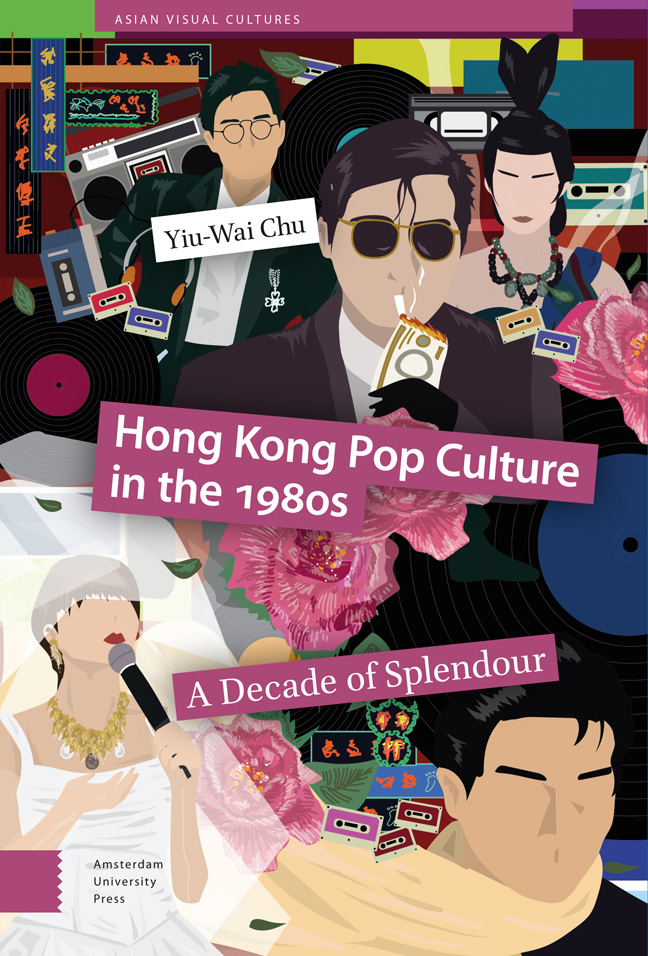Book contents
- Frontmatter
- Acknowledgments
- A Note on Romanization and Translation
- Contents
- Dedication
- Prologue: Horse Racing and Dancing as Usual
- Introduction
- 1 Televising Pop: New Stars and Renewed Sensibilities
- 2 Golden Days of the Silver Screen: Cinematic Imagination in a Not Yet Fallen City
- 3 The Sound of Chinese Cool: Do You See the City Sing?
- 4 The Importance of Being Chic: Fashion, Branding, and Multimedia Stardom
- 5 The Practice of Everynight Life: Disco as Another Kind of Dance
- 6 (Un)Covering Cosmopolitan Hybridity: Every Great City Deserves a City Magazine
- Epilogue: ‘We’ll Always Have Hong Kong’
- Select Bibliography
- Glossary
- Index
Epilogue: ‘We’ll Always Have Hong Kong’
Published online by Cambridge University Press: 20 February 2024
- Frontmatter
- Acknowledgments
- A Note on Romanization and Translation
- Contents
- Dedication
- Prologue: Horse Racing and Dancing as Usual
- Introduction
- 1 Televising Pop: New Stars and Renewed Sensibilities
- 2 Golden Days of the Silver Screen: Cinematic Imagination in a Not Yet Fallen City
- 3 The Sound of Chinese Cool: Do You See the City Sing?
- 4 The Importance of Being Chic: Fashion, Branding, and Multimedia Stardom
- 5 The Practice of Everynight Life: Disco as Another Kind of Dance
- 6 (Un)Covering Cosmopolitan Hybridity: Every Great City Deserves a City Magazine
- Epilogue: ‘We’ll Always Have Hong Kong’
- Select Bibliography
- Glossary
- Index
Summary
Nothing was impossible in the 1980s, but at the same time many other future possibilities were buried.
Abstract
Although the examples discussed in the previous chapters have followed a similar rise-fall trajectory, this chapter does not intend to draw the conclusion that this applied to other forms of Hong Kong pop culture. Instead of a standard conclusion, it is being used to enunciate some more personal belongings (such as Seiko the soccer team). It informally wraps up previous discussions in relation to the statement raised at the beginning of this book: “We’ll always have Hong Kong.” By highlighting its pop and chic, this cultural memoir of the city will hopefully point toward the Hong Kong at least some Hong Kong people will always have.
Keywords: synergies, trajectory, soccer, northbound imaginary, cultural memoir
The Golden Decade: Gone for Good?
At the beginning of this book, I argued that it was necessary to articulate one's personal belonging. Personally, I do not have anything fascinating to write about, but the city where I was born and grew up does. What I watched, listened to, and read, and where I (window) shopped and saw people dancing are very well worth recording. As previously mentioned, my recordings in this book were partially inspired by Leo Ou-fan Lee's City Between Worlds: My Hong Kong. I cannot agree more with Didi Kirsten Tatlow on what she said in her review of this book: ‘Anecdotes and vignettes pepper Lee's book. Yet this is no elegiac history of a colony-that-was; rather, his gentle, personal musings read more like a declaration of love for a city full of contradictions.’ Unlike Leo Lee's stance of ‘the fl.neur chronicling the life of a beloved city’, though, I looked back at the 1980s as a time when the economy as well as the pop culture of my Hong Kong flourished on an unprecedented scale. In a special feature on the 1980s published by Ming Pao Weekly in November 2016, the editor made the remark quoted in the epigraph, which perfectly summed up the gains and losses of the decade in which Hong Kong cultural industries had ‘the magical Midas Touch’.
- Type
- Chapter
- Information
- Hong Kong Pop Culture in the 1980sA Decade of Splendour, pp. 257 - 274Publisher: Amsterdam University PressPrint publication year: 2023



